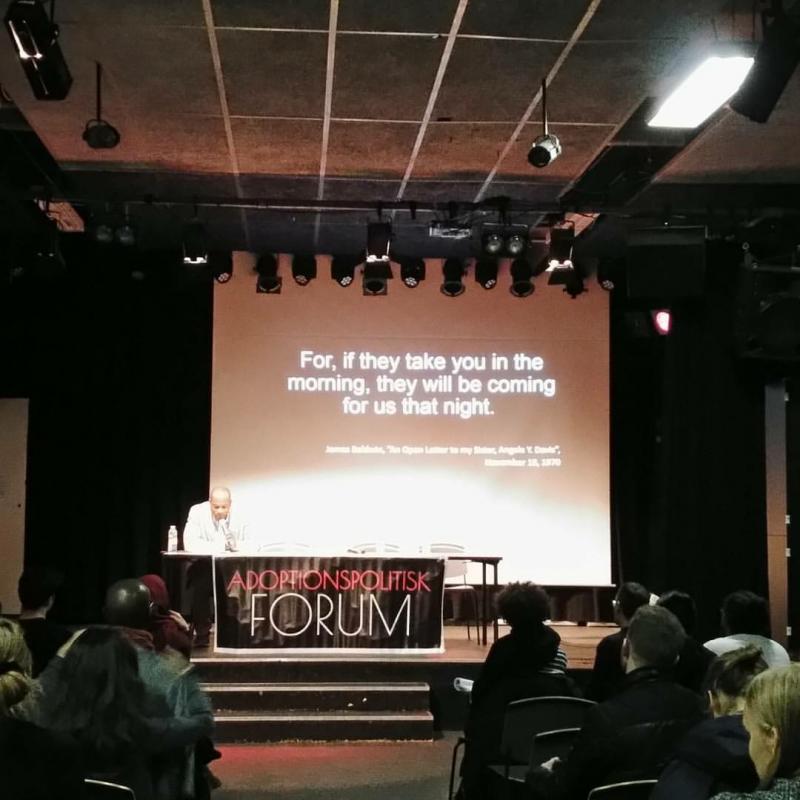
This presentation, dialogue and open question examines the possibilities for rooted global everyday solidarities in moments of social, political and cultural emergency. The proliferation and threat of violence that has terrorized and underdeveloped black America and indigenous populations for centuries, leaving millions in poverty and disenfranchisement, has now vowed to extend its reach and scope. The election of corporatist billionaire Donald Trump as the 45th president of the United States has met with great protest from intersections of human beings outraged by his verbal assaults and euphemistic vows to unleash administrative state violence on women, minority groups, LGBTQ communities, immigrants, and anyone who might find themselves out of the bounds and strictures of “Make America Great Again.” Trump’s victory, endorsed by the KKK, has emboldened racists across the nation. Within two weeks of his election win, more than 700 incidents of hate and racism were reported, the majority of them directed at Muslims, African Americans, women and LGBT community members. Many states, cities, and universities across the USA have declared or received petitions asking them to declare their respective jurisdictions as sanctuary spaces that would protect against any potential Trump administration legislation and initiatives designed to unjustly deport, register and/or discriminate against immigrants without papers, Arab Americans, and other populations made vulnerable through Trump’s election and identified as targets in his campaign speeches, interviews and the speech acts of his cabinet selections. Trump’s supporters and doppelgängers appear in various forms in governmental positions and the private sector not only in the United States, but also in Europe and the rest of the world. This globalization of hatred requires renewed approaches to galvanize and unite everyday forms of transnational civil resistance, knowledge production and activism contingent on Baldwin’s premise that “all lives are connected to other lives and when one man goes, much more than the man goes with him.” The Bruegelian “crime of innocence” that applies to the masses who stood/stand by while black America faced/faces brutality, murder, incarceration, and exploitation, is emerging once again and expanding through forms of what Eddie Glaude refers to as “the selfishness and narcissism that have defined neoliberalism.” Glaude calls for a “revolution in value” that would radically shift how we evaluate government, life, and what “ultimately matters.” For Baldwin, it requires every individual to relativize individualism and understand the self as the “custodian of a quantity.”
If they take you in the morning, they will be coming for us that night - On the importance of intersectional transnational solidarity movements in a time of Trump and Neo-liberal madness
Date
Location
Copenhagen, Denmark
